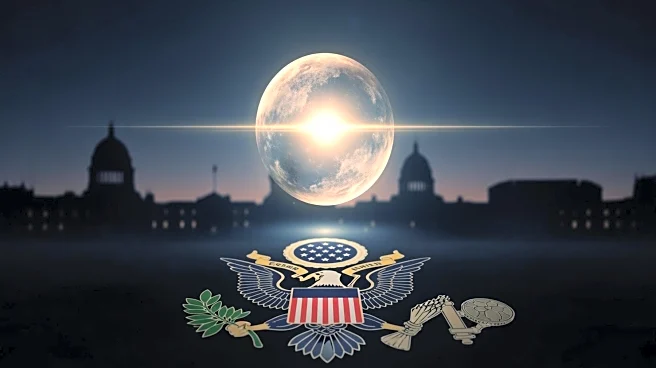What's Happening?
An unnamed donor has contributed $130 million to the Pentagon to ensure that US troops receive their salaries during the ongoing government shutdown. The shutdown, now in its 26th day, has resulted from lawmakers' failure to approve a funding deal. President
Trump confirmed the donation, describing the benefactor as a 'great gentleman' and a 'patriot,' but did not disclose the donor's identity. The funds are intended to cover shortfalls in paying the country's 1.32 million service members, as the administration had previously shifted $8 billion from military research to pay troops. The next military payday is scheduled for October 31, and the donation is expected to help meet this obligation.
Why It's Important?
The donation highlights the severe impact of the government shutdown on military personnel, who face the risk of not receiving their salaries. This unprecedented move raises ethical concerns about the influence of private donations on public institutions, particularly the military. Critics, including Senator Chris Coons, have expressed concerns about the implications of accepting anonymous funds, suggesting potential risks of foreign influence. The situation underscores the urgency for lawmakers to resolve the funding impasse to prevent further disruptions to military operations and personnel welfare.
What's Next?
The Pentagon's acceptance of the donation under its 'general gift acceptance authority' suggests that further scrutiny may be required, especially given the donation's size and anonymity. As the shutdown continues, pressure mounts on Congress to pass legislation ensuring military pay during such periods. The situation may prompt discussions on the ethical and legal frameworks governing private donations to government entities, particularly in times of crisis.
Beyond the Headlines
The donation raises broader questions about the role of private wealth in public governance, especially in critical sectors like defense. It may lead to debates on the transparency and accountability of such contributions, and whether they set a precedent for future interactions between private donors and government functions. The ethical dimensions of this situation could influence future policy decisions regarding the acceptance of private funds by government agencies.















